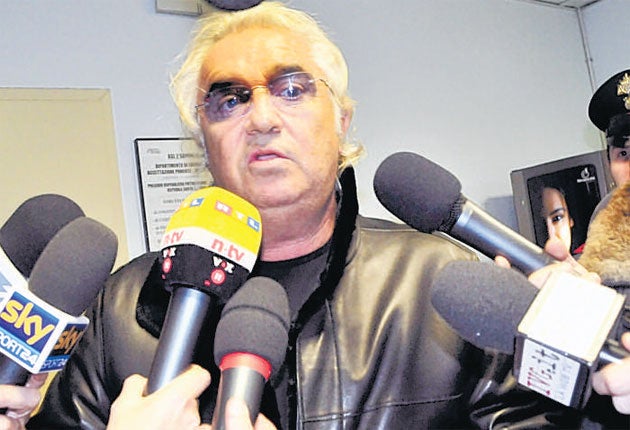Doctors optimistic of saving Kubica's hand

Your support helps us to tell the story
From reproductive rights to climate change to Big Tech, The Independent is on the ground when the story is developing. Whether it's investigating the financials of Elon Musk's pro-Trump PAC or producing our latest documentary, 'The A Word', which shines a light on the American women fighting for reproductive rights, we know how important it is to parse out the facts from the messaging.
At such a critical moment in US history, we need reporters on the ground. Your donation allows us to keep sending journalists to speak to both sides of the story.
The Independent is trusted by Americans across the entire political spectrum. And unlike many other quality news outlets, we choose not to lock Americans out of our reporting and analysis with paywalls. We believe quality journalism should be available to everyone, paid for by those who can afford it.
Your support makes all the difference.Robert Kubica was yesterday awakened from an induced coma as he began the first day of a lengthy rehabilitation from serious injuries sustained in a rallying accident on Sunday.
Kubica, who suffered a partially severed right hand and fractures to his right arm and leg in a high-speed shunt on the Ronde di Andora Rally, was able to speak to medical staff for the first time on Sunday evening following seven hours in surgery.
The 26-year-old's Super 2000 Skoda Fabia left the road and collided with a church on the first special stage of the rally, with reports suggesting his injuries were caused by a crash barrier penetrating the driver's footwell. His co-driver, Jakub Gerber, was unhurt.
The head of the intensive care unit at the Santa Corona Hospital in Pietra Ligure, Dr Giorgio Barabino, shed more light on the extent of the Pole's injuries, saying several transfusions had been required to stabilise his condition as a result of significant blood loss.
"Kubica is conscious, he talks and understands what has happened," said Dr Barabino. "The first thing he thought about was his co-driver and was informed about his condition.
"Things are going well considering that there was substantial damage. There were huge difficulties we faced and the necessary measures were taken immediately. Kubica lost a lot of blood, that is why the first hour was critical.
"He was unconscious and could not be operated on when he arrived at the hospital. He needed many transfusions during the stabilising process, as well as during the very long surgery."
Earlier, Kubica's manager Daniele Morelli said the Formula One driver had taken "important steps forward" in his recovery. "He is suffering because of the lesions to his leg and arm, but the brain activity is OK and we are certainly more relieved than we were 24 hours ago," Morelli said.
Professor Mario Igor Rossello, who operated on Kubica on Sunday, has said the Lotus Renault driver will take a year to recover from his injuries, while more immediately it will take the best part of a week to determine whether the procedure to reconstruct his hand was a success. Rossello, a specialist hand surgeon, said: "The hand is warm, which means the surgery went well. It was a difficult operation. We will need six days to verify if the blood circulation in the limb responds as it should do."
The Lotus Renault team principal, Eric Boullier, defended the decision to allow Kubica to contest a rally so close to the start of the new Formula One season. "It was agreed between us he keep doing the rallies because it was part of his balance in his life," he said.
Join our commenting forum
Join thought-provoking conversations, follow other Independent readers and see their replies
Comments